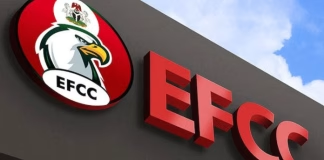The consumption levels of data for Internet connectivity and financial transactions are increasingly mounting pressure on telecoms infrastructure in Nigeria.
The growing smartphone adoption coupled with increasing demand for high-speed Internet is a challenge for operators to reimagine their operations as it holds business prospects for existing and new investors.
Absa, a leading pan-African Corporate and Investment Bank notes that the low Internet penetration rates in Nigeria in the midst of rising demand for data present a huge opportunity for increased investment in Nigeria’s telecoms industry.
The number of active Internet subscriptions has exceeded 143 million as of February this year, as broadband penetration stands at 40.9 per cent for a population of about 216 million people.
Sadiq Abu, Chief Executive Officer of Absa Nigeria, said, “The outlook for growth in Nigeria’s telecoms industry is strong. The gaps in last-mile telecoms infrastructure are largely untapped. The current momentum of emerging technologies and financial services delivers boundless growth horizons for telcos to upgrade their infrastructure and expand their reach.
“The telecommunications industry is generating interest from local and foreign investors. The telcos are already strategically developing useful business vehicles to take advantage of emerging opportunities in the industry.”
The relevance of telecom industry to the economy became prominent during the pandemic as the connectivity operators offer turned out to be a key tool for business continuity, driving human interaction and keeping people up-to-date on vital health and safety information.
People relied on bandwidth-heavy activities for entertainment and learning. Activities around remote learning and gaming grew intensely. More people used videoconferencing for meetings as well as national, regional and global conferences.
In as much as the industry was a major driver of economic growth during that challenging period, the ineptitude of the available infrastructure became glaring as it exposed the huge digital divide and many regions that have no connectivity.
Africa has the lowest number of Internet connections with only 22 per cent of the continent having access, indicating that the continent has the largest potential for growth, according to the International Finance Corporation (IFC).
Hasnen Varawalla, the Co-head of Investment Banking Origination for Absa, said the listing of two prominent telecommunications companies in Nigeria on the Nigeria Exchange Group (NGX) has boosted the sector and the capital market and they both contribute 54 per cent to the capital base of the market.
He explained that the sector powers other critical sectors of the economy drives fintech businesses, supports government revenue collection drive, security, e-commerce services and smart city plans.
According to him, “Absa is a significant capital provider to the entire telecoms sector in Africa. Our role is not limited to providing capital though; we are amongst the most active advisers to telco/telco infrastructure companies have led and/or participated in many landmark transactions across the continent, including the GBP 595m Airtel IPO on the NGX, the sale of 9mobile to Teleology, Vodacom IPO on the Tanzania Stock Exchange, the US$ 378 IHS IPO on the NYSE, the acquisition by IHS of MTN’s tower portfolio in South Africa, amongst others.
“We continue to make available our deep telecoms sector expertise to help telcos take advantage of emerging opportunities that will fast track the timely achievement of their growth aspiration,” Varawalla said.
With the Nigeria Communication Commission’s ongoing implementation of the Nigerian National Broadband Plan (NNBP) 2020-2025, which aims to increase broadband penetration to 70 per cent by 2025, now is the time for investors to align with this plan, take informed risks on innovation, network expansion and infrastructure upgrades.
Internet traffic has been on the rise, with more than 70 per cent coming from mobile devices, making the switch from 3G to 4G and 5G inevitable. Also, many technologies that will ride on the infrastructure going forward are limitless.
Embracing new business models and expanding into new industries, such as fintech, TV and the stock market will accelerate operators’ growth aspirations. Many mobile network operators in Africa have already recorded tremendous reach with mobile financial services on the continent due to their large customer base, existing distribution network and mobile phone penetration. The telecommunications services industry hold potential for fibre, telecommunications towers, active networks, mobile and fixed broadband, data centres and e-commerce investor, among others.
Indeed, Absa’s invaluable role in providing capital for telecom expansion in Africa and offering advisory services has led to many innovations and landmark transactions across the continent.
Absa offers investment banking and market products through various Nigerian registered subsidiaries, namely Absa Representative Office Nigeria Limited, Absa Capital Markets Nigeria Limited, and Absa Securities Nigeria Limited.













